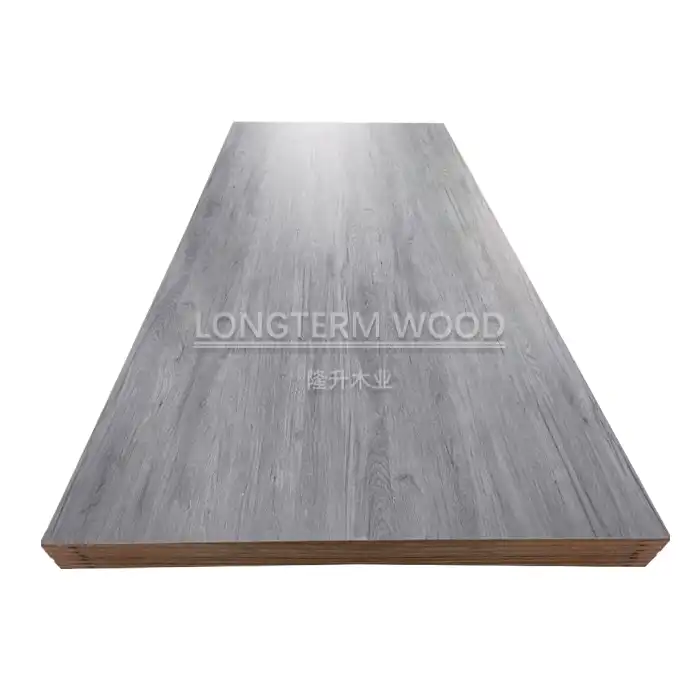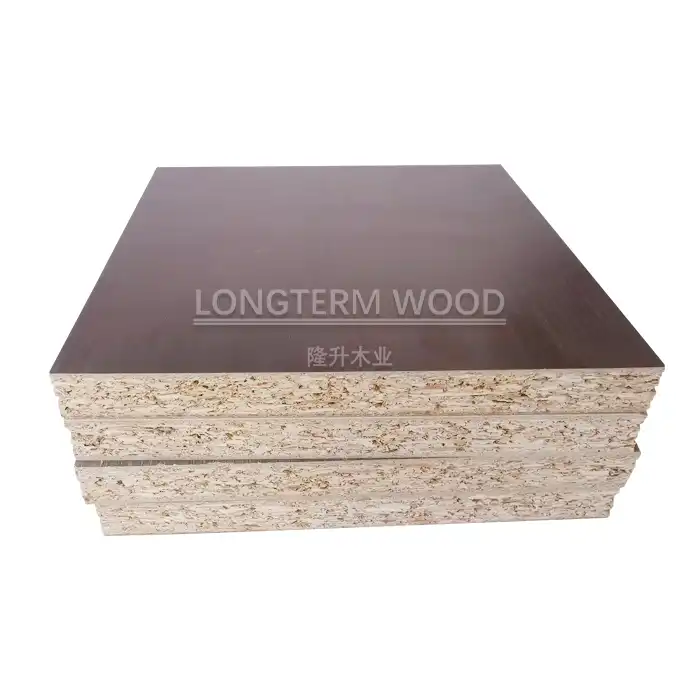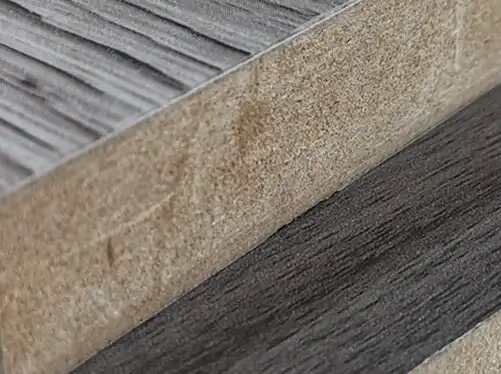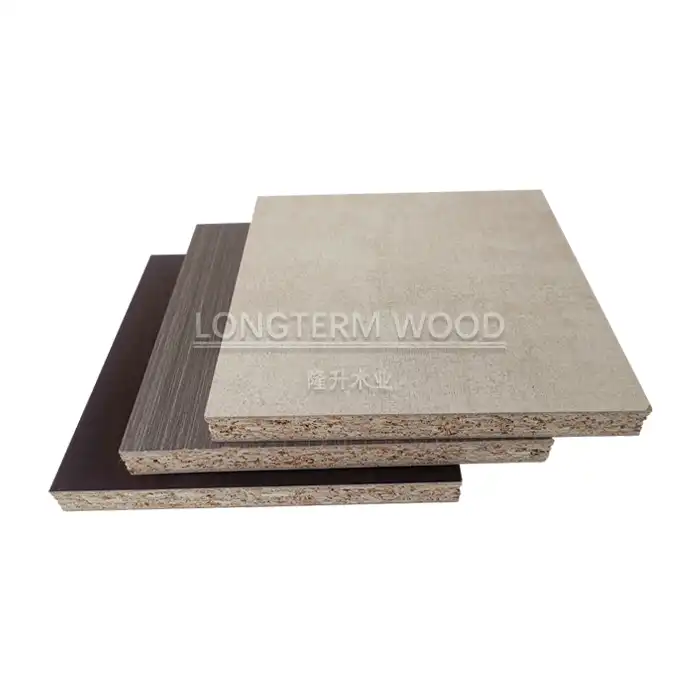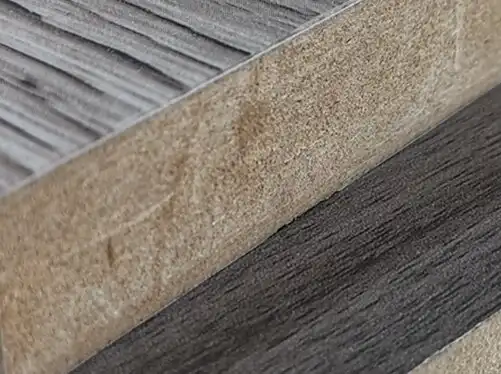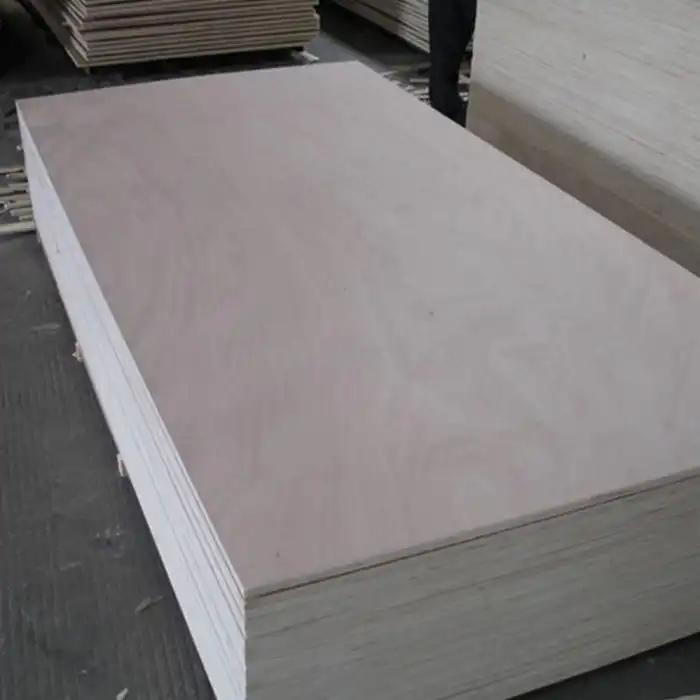
Why Is Melamine Plywood Becoming the Top Choice in Europe?
2025-06-12
Across European markets, a significant shift is occurring in construction and furniture manufacturing industries as melamine plywood rapidly emerges as the material of choice. This engineered wood product, consisting of plywood core panels with melamine-impregnated paper thermally fused to the surfaces, has captured the attention of architects, interior designers, and manufacturers throughout the continent. The growing preference for melamine plywood stems from its exceptional blend of durability, aesthetic versatility, and environmental credentials that align perfectly with European standards and consumer preferences.
The Evolution of Wood Engineered Products in European Construction
From Traditional Timber to Advanced Engineered Solutions
The European construction industry has witnessed a remarkable transformation over the past decades, evolving from traditional timber usage to sophisticated engineered wood products. Melamine plywood stands at the forefront of this evolution, representing the culmination of technological advancements in wood processing. The journey began with simple plywood, but as European building standards became more stringent and consumer preferences more refined, the demand for superior performance characteristics grew exponentially. Melamine plywood emerged as the ideal solution, combining the structural integrity of plywood with the enhanced surface properties provided by melamine resin. This evolution reflects broader trends in European construction toward materials that offer multifunctional benefits while maintaining environmental responsibility. The material's adoption rate has increased by approximately 15% annually across various European markets, demonstrating its growing significance in the construction sector and positioning melamine plywood as the logical next step in the progression of engineered wood products.
Environmental Regulations Driving Market Preferences
Europe's stringent environmental regulations have significantly shaped market preferences in construction materials, creating an advantageous position for melamine plywood. The European Union's Construction Products Regulation (CPR) and various national green building standards have established demanding requirements for building materials regarding emissions, sustainability, and lifecycle assessment. Melamine plywood, especially varieties adhering to E1 and E0 formaldehyde emission standards, perfectly aligns with these regulatory frameworks. The material's production process at facilities like Linyi Longterm Wood Industry incorporates eco-friendly adhesives and controlled manufacturing techniques that ensure minimal environmental impact. Additionally, the European market's emphasis on circular economy principles has increased demand for durable, long-lasting materials that reduce replacement frequency and associated resource consumption. As sustainability continues to drive purchasing decisions across European markets, melamine plywood's environmental credentials – combining responsible sourcing, low emissions, and extended product lifecycle – have become compelling differentiators that explain its growing market dominance over alternative materials with heavier environmental footprints.
Cost-Effectiveness in European Economic Context
The European economic landscape, characterized by fluctuating construction costs and pressure to maintain competitive pricing, has created fertile ground for melamine plywood's market expansion. A comprehensive cost analysis reveals that while melamine plywood may have a slightly higher initial investment compared to unfinished alternatives, its total ownership cost proves significantly lower when factoring in installation, maintenance, and longevity. European project managers and procurement specialists increasingly recognize this value proposition, especially as labor costs continue to rise across the continent. Melamine plywood's factory-finished surfaces eliminate expenses associated with on-site finishing, reducing both material costs and labor hours. Furthermore, the European construction sector's post-pandemic recovery has emphasized efficient resource allocation, pushing decision-makers toward materials offering predictable performance and minimal maintenance requirements. Melamine plywood's combination of durability and ready-to-use finish represents an optimal balance between upfront investment and long-term savings, making it increasingly attractive in cost-conscious European markets where quality cannot be compromised despite budgetary constraints.
Superior Technical Attributes Winning European Professionals
Unmatched Durability in Demanding Applications
The exceptional durability of melamine plywood has become a decisive factor in its growing popularity across European markets, particularly in applications where longevity under challenging conditions is paramount. The melamine resin surface creates a formidable barrier against the various forms of wear that typically afflict wood products in high-traffic commercial and residential settings. Independent testing conducted by European materials research institutes has demonstrated that quality melamine plywood maintains its structural integrity and appearance even after years of intensive use. The material's resistance to moisture penetration significantly reduces the risk of swelling, warping, or delamination – common issues that plague traditional wood products in Europe's diverse climate zones ranging from Nordic humidity to Mediterranean heat. Additionally, the sealed surface prevents the absorption of spills and chemical agents, making maintenance straightforward and extending the material's functional lifespan considerably. Linyi Longterm Wood Industry's manufacturing process enhances these inherent durability advantages through precise quality control at every production stage, from veneer selection to final pressing, ensuring consistent performance characteristics that European professionals can rely upon for long-term installations where replacement would be costly and disruptive.
Aesthetic Versatility Meeting European Design Trends
The remarkable aesthetic versatility of melamine plywood has positioned it as an ideal material for Europe's diverse and evolving design landscape. Contemporary European interior design embraces both minimalist and expressive approaches, requiring materials that can adapt to various stylistic visions. Melamine plywood excels in this regard, offering an extensive palette of colors, patterns, and textures that simulate everything from classic wood grains to contemporary solid colors and abstract designs. This versatility allows designers to achieve consistent visual language throughout projects while maintaining the practical benefits of engineered wood. The material's ability to complement other elements – from glass and metal in modernist schemes to natural materials in biophilic designs – has made it indispensable in European architectural practices focused on creating cohesive, harmonious spaces. Furthermore, the precision of modern manufacturing techniques enables the reproduction of high-end wood species appearances without the sustainability concerns or cost implications of rare hardwoods, appealing to Europe's growing conscience regarding responsible resource utilization. Linyi Longterm Wood Industry has responded to these market demands by continuously expanding their design options, working closely with European design professionals to develop finishes that anticipate and reflect regional aesthetic preferences while maintaining the technical performance that makes melamine plywood such a versatile design solution.
Installation Efficiency in Labor-Constrained Markets
Europe's construction sector continues to face significant labor challenges, with skilled worker shortages reported across multiple countries. This context has elevated the importance of materials that facilitate efficient installation processes, an area where melamine plywood demonstrates considerable advantages. The dimensional stability and consistent quality of properly manufactured melamine plywood significantly reduce on-site adjustments and rework, directly translating to labor savings and accelerated project timelines. European contractors report approximately 20-30% reduction in installation time compared to materials requiring site finishing or extensive preparation. The pre-finished nature of melamine plywood eliminates drying times and multiple application steps associated with traditional finishing methods, allowing for immediate installation and subsequent construction phases to proceed without delays. Additionally, the material's machinability characteristics make it compatible with modern CNC processing and automated manufacturing systems increasingly adopted throughout Europe's furniture and joinery sectors. Linyi Longterm Wood Industry enhances these inherent efficiency benefits through precise manufacturing tolerances and quality control systems that ensure each panel meets exacting specifications, reducing the variables installers must accommodate on-site. As European construction continues to embrace prefabrication and modular approaches to address labor constraints, melamine plywood's predictable performance and installation efficiency have become increasingly valuable attributes that explain its growing market preference over alternatives requiring more intensive labor input.
Practical Applications Driving Adoption Across Europe
Transforming European Commercial Interiors
The commercial interior sector across Europe has embraced melamine plywood as a transformative material solution that addresses multiple requirements simultaneously. From retail environments to hospitality spaces and corporate offices, melamine plywood has demonstrated exceptional versatility and performance. In retail applications, the material's ability to withstand constant customer interaction while maintaining its aesthetic appeal has made it particularly valuable for display fixtures, wall panels, and custom furniture. European hotel chains have increasingly specified melamine plywood for case goods and architectural elements due to its durability against daily housekeeping operations and guest usage, combined with design flexibility that allows each property to maintain brand consistency while incorporating local design influences. The corporate sector presents perhaps the most comprehensive adoption case, with melamine plywood featuring prominently in workstations, conference facilities, reception areas, and collaborative spaces. Its acoustic properties, when incorporated into specialized designs, help address noise concerns in open-plan environments prevalent in European office design. Additionally, the material's compatibility with modern modular construction methods allows for reconfiguration as organizational needs evolve – a significant advantage in Europe's dynamic business environment. Linyi Longterm Wood Industry's products have found particular success in these applications due to their consistent quality control systems that ensure uniformity across large orders, critical for maintaining visual coherence in extensive commercial projects spanning multiple phases or locations.
Residential Applications Meeting European Living Standards
European residential construction and renovation sectors have increasingly turned to melamine plywood as homeowners and developers seek materials that combine practicality with contemporary aesthetics. Kitchen cabinetry represents one of the most significant applications, where melamine plywood's moisture resistance, durability against daily use, and hygienic surface properties create an ideal combination for this demanding environment. European kitchen manufacturers appreciate the material's dimensional stability, which ensures drawers and doors function smoothly throughout their lifespan despite fluctuations in humidity common in cooking spaces. In bathroom applications, the water-resistant properties of properly sealed melamine plywood make it suitable for vanities and storage solutions where traditional wood products would deteriorate. The material has also gained prominence in built-in furniture solutions – particularly valuable in Europe's urban centers where space optimization is essential – providing custom storage that maximizes functionality in compact living environments. The range of finishes available allows these practical elements to serve as design features rather than mere functional necessities. Additionally, melamine plywood's consistency and machinability have facilitated the growth of Europe's flat-pack furniture sector, enabling manufacturers to produce precisely engineered components that assemble reliably in residential settings. Linyi Longterm Wood Industry has successfully positioned its melamine plywood products in this market by offering the specific thickness dimensions, edge quality, and surface characteristics that European residential applications demand, ensuring compatibility with hardware systems and assembly techniques prevalent in the region.
Sustainable Building Practices and Certification Requirements
Europe leads globally in sustainable building certification programs, with standards like BREEAM, DGNB, and national green building frameworks establishing rigorous requirements for material selection. Melamine plywood has become increasingly favored in projects pursuing these certifications due to its comprehensive sustainability profile that addresses multiple assessment criteria. When sourced from responsible manufacturers like Linyi Longterm Wood Industry who maintain chain-of-custody documentation, melamine plywood contributes positively to responsible material sourcing credits. The material's durability and low maintenance requirements support lifecycle assessment objectives by reducing replacement frequency and associated resource consumption. The low emission characteristics of E0 and E1 classified melamine plywood directly address indoor environmental quality criteria, particularly important in the European context where occupant health considerations receive significant emphasis in building standards. Furthermore, the material's efficient use of wood fiber – transforming what might otherwise be lower-value wood into high-performance panels – aligns with resource efficiency principles central to European sustainability frameworks. Projects throughout Northern and Western Europe, regions with particularly stringent environmental standards, have demonstrated that melamine plywood can contribute significantly to achieving higher certification levels when properly specified and documented. The material's growing presence in certified green buildings across the continent provides tangible evidence of its compatibility with Europe's most forward-thinking construction practices, further accelerating adoption as sustainability continues to transition from exceptional practice to standard requirement in European construction and interior design.
Conclusion
Melamine plywood has emerged as Europe's premier engineered wood solution by delivering the perfect combination of durability, aesthetic versatility, and environmental responsibility that today's market demands. Its growing adoption across diverse applications demonstrates its exceptional value proposition for professionals seeking materials that perform reliably without compromising on design potential or sustainability. Looking for premium melamine plywood solutions for your next project? Contact Linyi Longterm Wood Industry with over 20 years of manufacturing excellence, offering customized solutions, stringent quality control, and competitive pricing tailored to European market requirements. Reach out today at howie@longtermwood.com to discover how our expertise can enhance your next project.
References
1. European Panel Federation. (2023). "Market Analysis: The Growing Demand for Engineered Wood Products in Construction."
2. Jensen, K. & Schmidt, T. (2024). "Sustainable Materials in European Architecture: A Comprehensive Review."
3. Baumgartner Institute for Material Science. (2023). "Comparative Analysis of Surface Treatments for Wood-Based Panels."
4. European Commission Joint Research Centre. (2024). "Environmental Impact Assessment of Construction Materials in EU Member States."
5. International Federation of Interior Architects/Designers. (2024). "Global Trends in Material Selection for Commercial Interiors."
6. Association of European Furniture Manufacturers. (2023). "Technical Performance Standards for Wood-Based Panels in Residential Applications."







